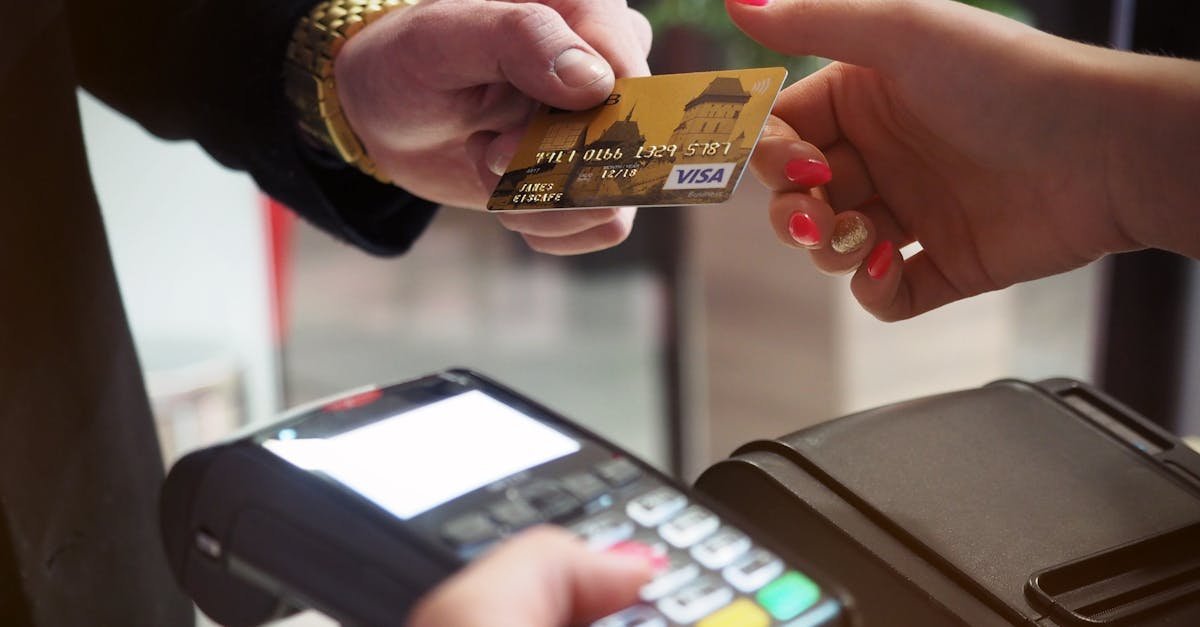
Key Takeaways
- Wise (formerly TransferWise) may require your Social Security Number (SSN) in the US for identity verification and to comply with financial regulations like the US Patriot Act.
- SSN requests typically depend on transaction type, amount, and whether additional verification is needed for compliance with legal obligations.
- Smaller transactions or prior verification using other documents (e.g., passport, driver’s license) may not necessitate providing an SSN.
- Wise ensures data security through strong encryption, regulatory compliance, and robust privacy measures, protecting users’ personal and financial information.
- Alternatives to Wise include options like PayPal, Skrill, cryptocurrency transfers, and local banks that may not require an SSN for verification but might involve higher fees.
- Transactions using prepaid cards or opting for lower transfer amounts can help bypass SSN requirements in many cases.
When it comes to sending money internationally, TransferWise—now known as Wise—has become a go-to platform for its low fees and transparent exchange rates. But if you’re in the US and thinking about using Wise, you might wonder if providing your Social Security Number (SSN) is necessary. It’s a valid concern, especially with all the emphasis on data privacy these days.
I’ve been there, questioning what personal information is required and why. Understanding how Wise operates and what details they need can give you peace of mind and help you decide if it’s the right service for you. So, let’s dive into whether Wise requires your SSN and what that means for your transactions.
What Is TransferWise?
TransferWise, now known as Wise, facilitates international money transfers with competitive features. It prioritizes low fees by offering mid-market exchange rates without hidden markups. Users can transfer funds in over 50 currencies, including USD, EUR, and GBP.
The platform’s multi-currency account enables individuals and businesses to hold and manage balances in different currencies. Wise issues local bank details for specific regions, like the US, UK, and EU, to simplify receiving payments globally.
Wise is regulated by financial authorities in multiple jurisdictions, ensuring compliance with data security standards. Examples include FinCEN in the US and the FCA in the UK. This oversight instills trust, making Wise a reliable choice for cross-border transactions.
Why TransferWise Might Request Personal Information
Wise requests certain personal information to ensure secure transactions and comply with international regulations. This information helps maintain trust and safety within its financial services.
Importance Of Identity Verification
Identity verification is essential for preventing fraudulent activities like money laundering or identity theft. Wise uses this process to confirm the identity of users transferring funds, ensuring transactions involve legitimate parties. For instance, I’ve noticed that verification often includes documents like a government-issued ID or proof of address. These measures protect both the sender and the recipient.
Compliance With Legal Regulations
Wise operates under strict financial regulations worldwide, including FinCEN in the US and FCA in the UK. Laws like the US Patriot Act require businesses to verify customer identities, particularly when dealing with financial institutions. When I transferred funds, I understood that Wise might need details like my SSN in the US to meet these legal obligations and prevent misuse of services. This ensures Wise’s compliance with global legal standards.
Does TransferWise Need Your Social Security Number?
Wise may request your Social Security Number (SSN) in the US to comply with legal and regulatory requirements. Whether it’s necessary often depends on the transaction type, amount, and identity verification process.
Factors That Determine If SSN Is Required
Wise requires an SSN primarily to comply with US financial regulations, including the US Patriot Act. Transactions above a certain threshold or involving specific countries may trigger additional verification steps, including an SSN. High-value transfers or those involving sensitive regulatory regions often necessitate enhanced identity checks.
If you’re setting up Wise for the first time, identity verification might require your SSN or an alternative document, based on the requirements for your jurisdiction. Regulatory obligations, such as FinCEN compliance, ensure Wise collects an SSN to combat financial crimes like money laundering.
Situations Where SSN May Not Be Necessary
For smaller transfers, Wise may not request an SSN if you’ve previously completed identity verification using other documents like a passport or driver’s license. Transfers involving lower amounts typically fall under a simplified verification process.
Users transferring funds to or from non-regulated countries might avoid providing an SSN, depending on jurisdiction-specific rules. If the recipient and sender reside outside the US, SSN requirements generally do not apply. However, Wise still ensures compliance with local and international regulations.
How TransferWise Ensures Data Security
Wise prioritizes data security to protect users’ sensitive information during international money transfers. The platform uses advanced technologies and compliance measures to safeguard personal and financial data.
Encryption And Privacy Features
Wise uses strong encryption protocols like HTTPS and 256-bit TLS to secure data in transit. This ensures that user information, such as bank account details or personal identification, remains encrypted and inaccessible to unauthorized parties while being transmitted. Stored data is also protected using cryptographic techniques to prevent breaches.
To enhance privacy, Wise complies with General Data Protection Regulation (GDPR) and other data privacy laws in regions where it operates. The platform limits data sharing to essential parties, like financial regulators or partner banks, ensuring no unnecessary third-party access to private information.
User Trust And Safeguards
Wise builds trust by maintaining transparency about its security practices. Regular audits by independent parties verify its compliance with global financial and data protection standards. The platform also employs robust fraud detection systems to monitor transactions for suspicious activity.
Multi-factor authentication (MFA) is available, adding an extra layer of account protection. With MFA enabled, users enter a verification code alongside their password to access their account, reducing the risk of unauthorized access.
By combining encryption, regulatory compliance, and user safeguards, Wise ensures users’ data remains secure throughout every transaction.
Alternatives If You Are Uncomfortable Sharing SSN
- Use Another Money Transfer Service
Some platforms don’t require an SSN for identity verification. For instance, PayPal and Skrill may only need government-issued IDs or basic personal details.
- Provide Alternative Documents
Certain providers accept documents like a passport, driver’s license, or utility bill if you prefer not to share your SSN. Check the provider’s policy for non-SSN verification options.
- Opt for Smaller Transactions
Transactions below specific thresholds may not trigger enhanced verification requirements, including an SSN request. This could vary based on the service and jurisdiction.
- Leverage Cryptocurrency Transfers
Crypto platforms like Coinbase or Binance often only ask for an SSN if you’re withdrawing large amounts or linking a bank account.
- Consult Local Banks
Local banks may provide international transfer services without requiring your SSN, although fees might be higher. It’s important to inquire about the specifics beforehand.
- Explore Prepaid Debit Card Transfers
Services like Western Union or MoneyGram allow transfers via prepaid cards, bypassing the SSN requirement in most cases.
Conclusion
Wise offers a reliable and secure platform for international money transfers, balancing compliance with global regulations and user convenience. While providing an SSN may be necessary in some cases, it’s primarily for ensuring legal adherence and maintaining security. For those uncomfortable with sharing this information, there are alternative options and strategies to explore. Ultimately, Wise’s transparency, competitive features, and commitment to data protection make it a trustworthy choice for cross-border transactions.
Frequently Asked Questions
1. What is Wise, and how does it work for international money transfers?
Wise (formerly TransferWise) is a platform for international money transfers that uses mid-market exchange rates with no hidden markups. It offers lower fees, supports over 50 currencies, and provides tools like a multi-currency account to manage balances in different currencies. Wise ensures transparency and is regulated by financial authorities globally.
2. Do I need to provide my Social Security Number (SSN) to use Wise in the US?
Providing an SSN may be required depending on the transaction type, amount, and verification process. For smaller transfers or previously verified accounts, alternative documents may suffice. Wise requests this information to comply with US financial regulations.
3. Why does Wise require identity verification for transactions?
Identity verification is mandatory to prevent fraudulent activities like money laundering and ensure compliance with global financial regulations, such as the US Patriot Act. Wise uses secure methods to confirm identities, enhancing trust and safety.
4. Is Wise secure for international transactions?
Yes, Wise employs advanced encryption protocols (like 256-bit TLS and HTTPS) and complies with regulations like GDPR. Data sharing is limited to essential parties, and features like Multi-Factor Authentication (MFA) further protect accounts.
5. Are there alternatives to Wise if I don’t want to provide an SSN?
Yes, alternatives include using other services like PayPal or Skrill, smaller transactions that may not trigger SSN requirements, cryptocurrency transfers, prepaid debit card transfers, or services like Western Union or MoneyGram.
6. Does Wise charge hidden fees for transfers?
No, Wise is transparent about its fees, using mid-market exchange rates without hidden markups. All fees are disclosed upfront for each transaction.
7. What additional benefits does Wise offer for global payments?
Wise provides local bank details in specific regions, allowing users to receive money like a local. It also supports managing multiple currencies in one account for added convenience.
8. Is my personal information safe with Wise?
Yes, Wise prioritizes data security using robust encryption and fraud detection systems. It undergoes regular audits to comply with data protection and security standards.
9. Under what circumstances does Wise request an SSN?
Wise may request an SSN for high-value transfers or transactions involving specific countries to meet regulatory requirements. For smaller transfers, alternative identity documents may be accepted.
10. How does Wise ensure regulatory compliance?
Wise is regulated by entities like FinCEN in the US and FCA in the UK. It follows strict standards for data security, anti-money laundering, and legal compliance to ensure safe transactions globally.





